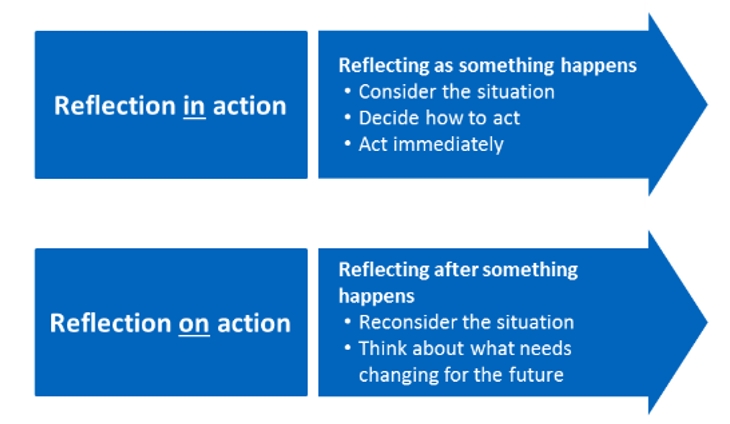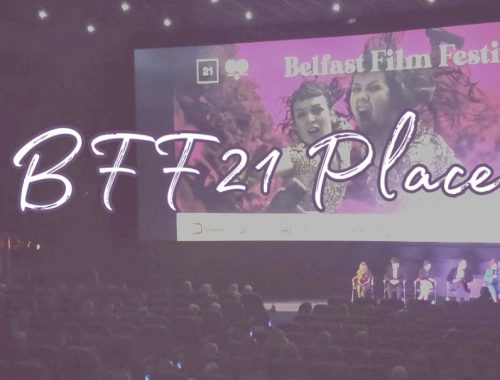Overcoming My Anxiety
Well, anxiety, my dear old friend. Funny how I thought I had finally started to overcome the issues you have caused me, but oh how I was wrong. Whilst in my personal life, I have overcome the fears of making friends and talking to new people and feeling safe in big crowds, I found myself riddled with anxiety during my first day of university placement.
Before I had even arrived at the Hearty Room to begin setting up for the first live-streamed concert of the year, I had already convinced myself that I was not good enough and I would be the least experienced member of the SARC video team. I find that in the many different scenarios that I have found myself in during my lifetime, I am the first person to put myself down. The first person to say that I am simply not good enough to do anything.
It’s almost like a coping mechanism I have created for myself. I’ll criticise myself first before anyone else is given the chance to so that in a way the upset caused by my critics is softened. And most of the time no one does give me criticism. I noticed that on my first day I had begun to take a step back and fade into the background, which was the exact opposite of what I wanted to achieve during my university placement. When I was accepted onto the SARC Media Team, I thought that this would be a great opportunity to develop my skills further and gain a better understanding of how the Broadcast/ Media industry worked. Not just stand back and let others take all the great opportunities away from me.

With reference to Schön’s Model of reflection, I began to understand the significance of learning through doing, to avoid the misperception caused by uncertainty. (68) I realised that in that moment of beginning to set up for the first live stream, that I was beginning to let myself down by not allowing myself to stand out and take on the opportunities presented to me at the time that would ultimately allow me to learn more.
There I was, faced with two options. Sit in silence riddled with anxiety or take my anxiety and leave it at the front door, and that’s exactly what I did. Here I considered the situation, decided how to act and did it immediately.
I had no confidence in messaging people, whether that would be sending an email to a lecturer or just sending a message into a group chat to discuss an upcoming assignment, and this was an issue that I wanted to overcome. So, I decided at that moment, that I would put myself forward as a producer/ vision mixer.
“The film producer has generally been thought of as a project manager or an employer whose main responsibility is to package the film and… supervise the production.”
– (Engelstad and Moseng 45)
Placing, Engelstand and Moseng’s, quote within the context of the SARC video team, the producer role was very important in ensuring that there was a team assembled each week that would then live steam the different concerts. In total, I have been the producer for 3 of the concerts. During that time, I had to communicate with each member of the team to check their availability and liaise with my supervisor explaining who will be on the team each week. I also had to ensure that everyone was aware of what time we would need to be at the venue for, who the artists were and assigned them their roles for the week. I.e., which camera they would be operating.
This was a big step away from my comfort zone, as I am so accustomed to allowing others to take the lead. If I had not seen that at that moment, I was beginning to let myself down, I would not have reaped the full benefits my university placement has given me. I have so far gained valuable experience that is crucial for my CV, that will allow me to gain my dream job. I have also learnt the importance of being able to communicate to be efficient and organised.
On reflection, I was successful in not allowing my inner saboteur from winning, as I silenced my own negative energy and prevented it from taking over. However, moving forward I must communicate with the other members of the SARC video team more effectively. At first, it was hard coordinating every member as there was no main mode of communication as everyone was getting in touch via different means. This made it more time consuming and difficult to relay information to each member and to our supervisors.
“The heart of foundation-building is communication that helps the parties do the following: make contact, find common ground, laugh together, build rapport, establish group norms, manage expectations…”
-(Karten section 2)
Karten explores the importance of communication, suggesting that it will generate better project outcomes as the team will be stronger, they will have more of a solid foundation. I will have to continue to overcome my anxiety and not be too shy to raise my voice. I would like to suggest putting a plan in place, so that the groups for each week are organised well in advance, rather than just a couple of days before the concert takes place. I believe this in turn will help me combat my anxiety levels more, as I will have a clearer idea of what is expected of me, and I will be more prepared. I also believe this will in turn strengthen the SARC Media Team as we will be able to allow one another to play to our strengths and understand each other’s restrictions better. To conclude, I will continue to overcome my anxiety by effectively communicating with other members of the team to generate better project outcomes by being more prepared.
Bibliography
- Engelstad, Audun and Moseng, Jo Sondre. “Mapping a Typology of the Film Producer- Or, Six Producers in Search of an Author.” Beyond the Bottom Line: The Producer in Film and Television Studies edited by Andrew Spicer, Anthony McKenna, Christopher Meir, Bloomsbury, 2014, pp. 45-64.
- Karten, Naomi. Communication Gaps and How to Close Them, Dorset House Publishing, 2013
- Schön, Donald A. The Reflective Practitioner: How Professionals Think in Action, Taylor & Francis Group, 1994
Hope all is well.
You May Also Like

Breaking into the Film Industry: What You Know or Who You Know?
24 November 2021
Learning from experience- Am I on the right track?
28 November 2021
